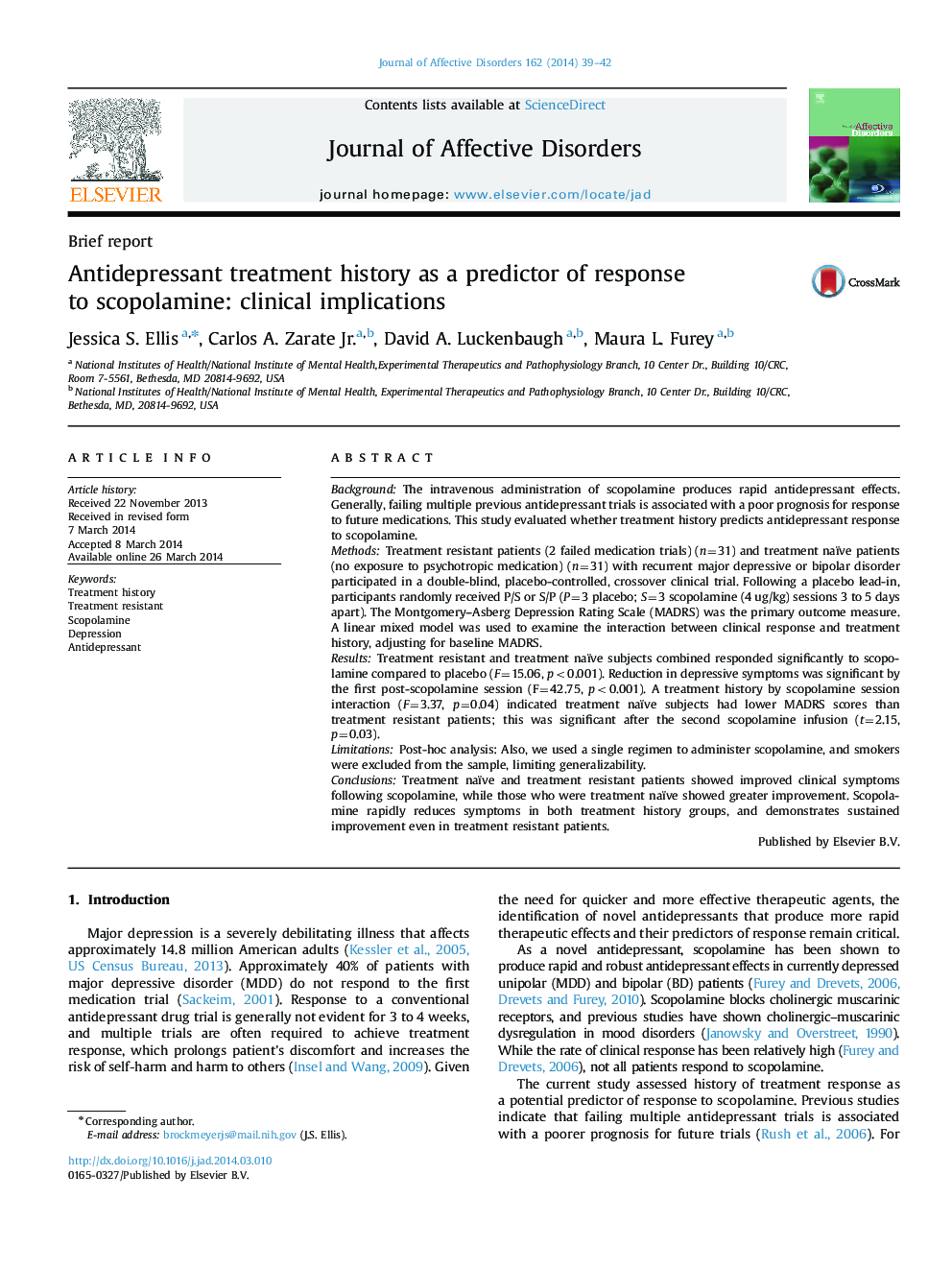| کد مقاله | کد نشریه | سال انتشار | مقاله انگلیسی | نسخه تمام متن |
|---|---|---|---|---|
| 6232952 | 1608163 | 2014 | 4 صفحه PDF | دانلود رایگان |
BackgroundThe intravenous administration of scopolamine produces rapid antidepressant effects. Generally, failing multiple previous antidepressant trials is associated with a poor prognosis for response to future medications. This study evaluated whether treatment history predicts antidepressant response to scopolamine.MethodsTreatment resistant patients (2 failed medication trials) (n=31) and treatment naïve patients (no exposure to psychotropic medication) (n=31) with recurrent major depressive or bipolar disorder participated in a double-blind, placebo-controlled, crossover clinical trial. Following a placebo lead-in, participants randomly received P/S or S/P (P=3 placebo; S=3 scopolamine (4Â ug/kg) sessions 3 to 5 days apart). The Montgomery-Asberg Depression Rating Scale (MADRS) was the primary outcome measure. A linear mixed model was used to examine the interaction between clinical response and treatment history, adjusting for baseline MADRS.ResultsTreatment resistant and treatment naïve subjects combined responded significantly to scopolamine compared to placebo (F=15.06, p<0.001). Reduction in depressive symptoms was significant by the first post-scopolamine session (F=42.75, p<0.001). A treatment history by scopolamine session interaction (F=3.37, p=0.04) indicated treatment naïve subjects had lower MADRS scores than treatment resistant patients; this was significant after the second scopolamine infusion (t=2.15, p=0.03).LimitationsPost-hoc analysis: Also, we used a single regimen to administer scopolamine, and smokers were excluded from the sample, limiting generalizability.ConclusionsTreatment naïve and treatment resistant patients showed improved clinical symptoms following scopolamine, while those who were treatment naïve showed greater improvement. Scopolamine rapidly reduces symptoms in both treatment history groups, and demonstrates sustained improvement even in treatment resistant patients.
Journal: Journal of Affective Disorders - Volume 162, 20 June 2014, Pages 39-42
